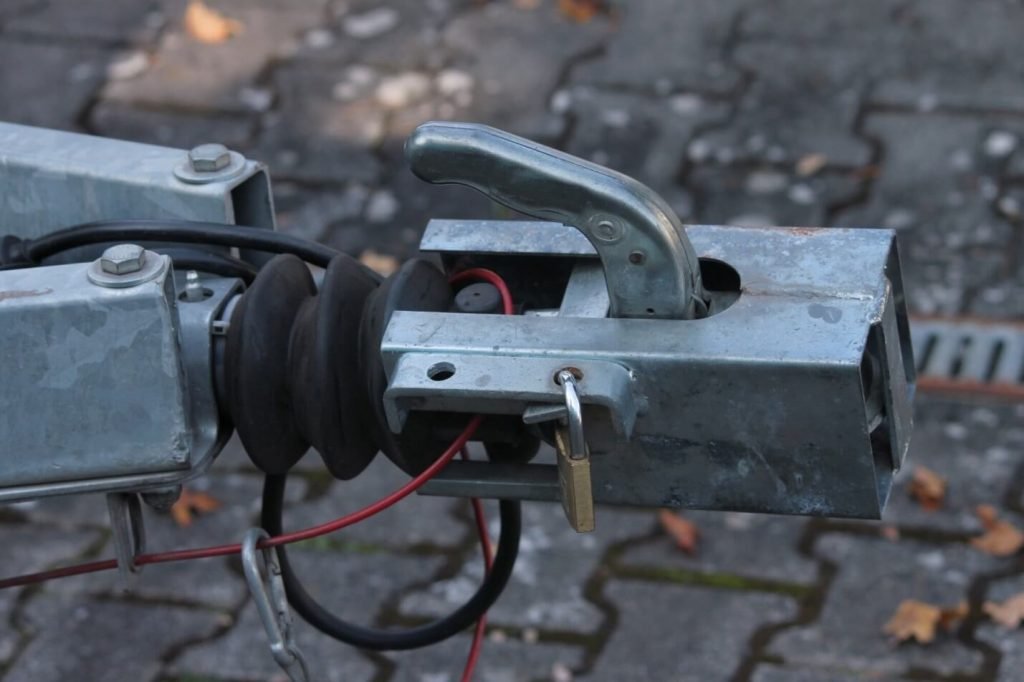Are you wanting to get outdoors more and experience nature?
Are you planning to buy a boat, camper, or trailer in the near future?
If you answered yes to that question, then it is important you know the different types of trailer hitches available and which one you will need to tow your new boat, trailer, or camper.
In order to find out what type of trailer hitch you will need, continue to read this article for all your information.
Table of Contents
Types Of Trailer Hitches
The type of trailer hitch you will need for your vehicle is dependent on the type of towing you will be doing.
Another factor to keep in mind is what type of vehicle you already have and if you’re planning to use that vehicle or buy something different.
Let’s take a look at some of the different types of hitches available.

Rear Receiver Hitch
The rear receiver hitch is probably the most common hitch available and comes in different types of hitch classes.
The different types of hitch classes for a rear receiver hitch are as follows:
- Class I: Used for towing light to moderate loads with a passenger car or crossover SUV
- Class II: Used for moderate towing with a light truck or minivan
- Class III: Used for mid-sized campers and boats with a pickup truck, or full-sized SUV
- Class IV: Used to tow large campers or toy haulers with heavy-duty trucks
- Class V: The heaviest duty rear receiver hitch for very large campers or even construction equipment
Fifth Wheel Hitch
This hitch is used exactly for what the name implies, to tow fifth-wheel trailers. This is the best trailer hitch to install if you plan to buy a fifth-wheel trailer.
This hitch can only be installed in the bed of a pickup truck, usually over the rear axle of the truck. This hitch will support up to 24,000 pounds of gross trailer weight, making it ideal for heavy campers and travel trailers.
Front Mount Trailer Hitch
A front mount trailer hitch is attached to the front of your vehicle and can be used for attaching a snowplow, a cargo carrier, or a spare tire mount.
Front mount trailer hitches can also be helpful when launching your boat or parking your trailer in a tight spot.
Gooseneck Trailer Hitch
Just like the fifth wheel hitch, the gooseneck trailer hitch mounts in the bed of a pickup truck.
Unlike the fifth wheel hitch, the gooseneck hitch uses a ball and coupler connection as opposed to a kingpin connection.
An advantage of having a gooseneck hitch over a fifth wheel hitch is that the gooseneck neck hitch isn’t as intrusive as the fifth wheel hitch. Simply stated, you can use the full capacity of your truck bed when not towing as the gooseneck hitch takes up much less room than the fifth wheel hitch.
Where To Have Your Hitch Installed
Once you have determined what the best trailer hitch for your towing needs is going to be, it is time to find a professional in the towing industry that can assist you in your needs.
Start by searching locally or trailer hitches near me to find a qualified professional.
Go Out And Have Fun
Now that you have spent the time reading about different types of trailer hitches, it’s time to put that new trailer hitch to use.
Enough sitting around the house, pack up the family and go camping, or boating and enjoy the outdoors knowing that you have the right trailer hitch installed by a qualified professional.
